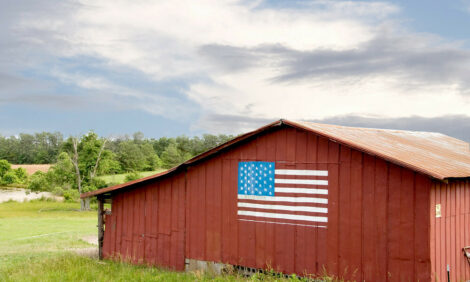



RSPCA identifies 10 animal welfare challenges for new UK government
Higher welfare farming, tougher sentencing for cruelty crimes and ending live exports are among the charity's goals.The RSPCA has issued a ten-point challenge to the future incoming Westminster government featuring goals to improve welfare for pets, wildlife and farm animals.
The animal charity’s manifesto urges a new administration to not only honour previously made animal welfare commitments but to build on them and lead the world on animal policy and law.
RSPCA Head of Public Affairs David Bowles said: “Our 10-point manifesto challenges the next government to protect and improve animal welfare.
“The goals we have set are wide-ranging, achievable and pragmatic, and could be underpinned by the creation of an Animal Welfare Commission to advise the Government on future policy development.
“Some proposed legislation, such as tougher sentencing for animal cruelty crimes and the recognition of animal sentience in policy making should be able to happen reasonably quickly as they only failed to progress because Parliament was dissolved.”
As well as new and improved laws stopping live animal exports and non-stun slaughter and ending Breed Specific legislation, the RSPCA’s proposals include initiatives to protect farmers’ livelihoods and farm animal welfare standards.
David Bowles continued: “A future government must make sure that UK farmers are not left at a disadvantage to other producers in any existing and future trade agreements, by ensuring that all imports are consistent with our own high animal welfare standards. That means banning imports of products such as chlorinated chicken and hormone beef.
“The RSPCA also wants UK farmers to be rewarded for investing in higher welfare farming systems, and for there to be mandatory method of production and slaughter labelling so consumers can make informed choices about the food they eat."
The animal charity is also urging the government to review the current approach to dealing with bovine TB.
David Bowles added: “We recognise that bTB causes significant distress to farmers as well as wildlife and believes there should be more focus on cattle health and welfare plans to limit cattle-to-cattle transmission, improve testing and the reduction of cattle movements especially from high-risk to edge and low risk areas and an improved funding system.
“And finally, we strongly believe that a compassionate society should be built from the roots up, and that includes ensuring that animal welfare is taught in all schools.This approach should be embraced by government policies and laws that set a framework of what is acceptable in society and also ensure that compassion towards animals remains at the heart of our culture and way of life.”
RSPCA Manifesto
- Higher welfare farming
- An end to live animal exports
- An end to Breed Specific Legislation
- Increased sentencing for animal cruelty offences
- Animal sentience recognised in law and an Animal Welfare Commissioner
- High animal welfare standards in free trade agreements
- A ban on non-stun slaughter
- Animal welfare education in schools
- Local authority funding
- An alternative evidence-based approach to stamping out bovine TB










